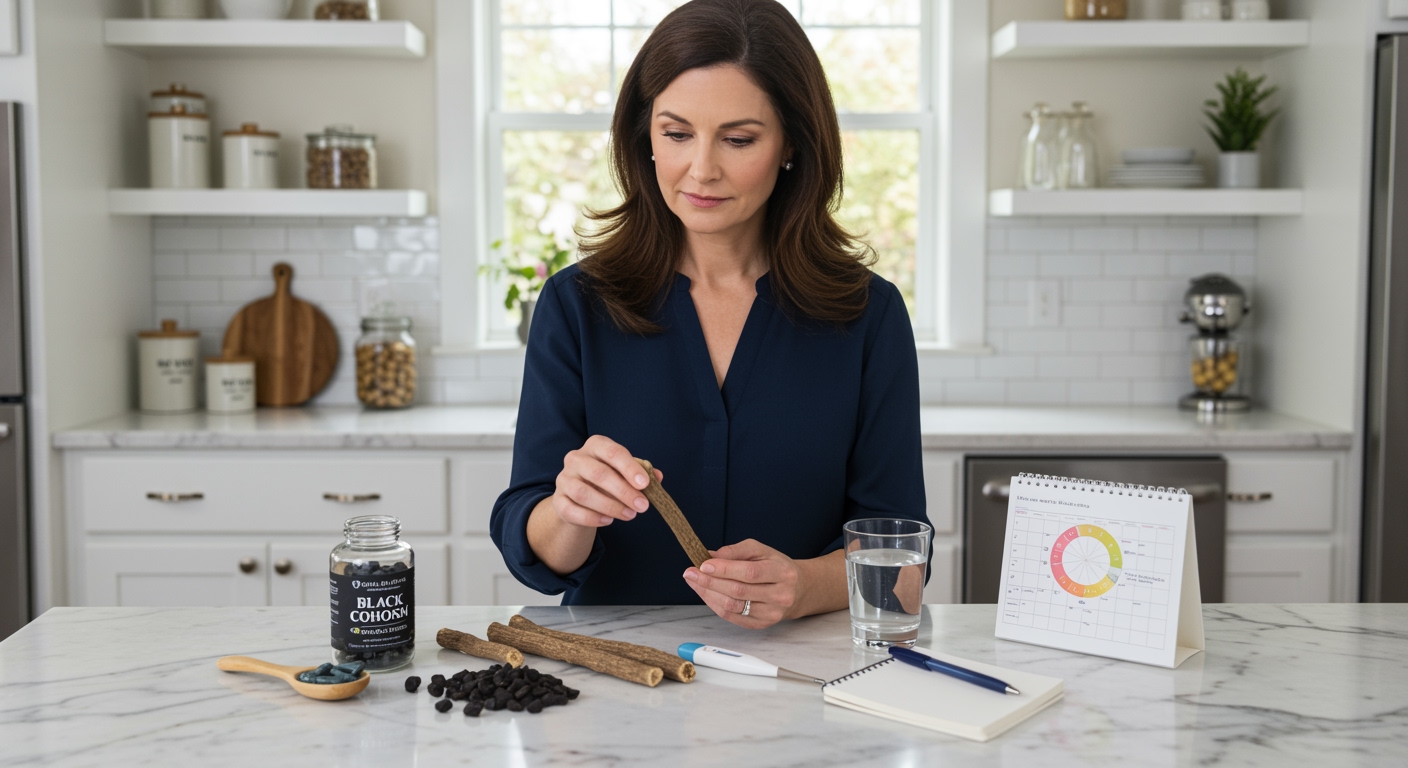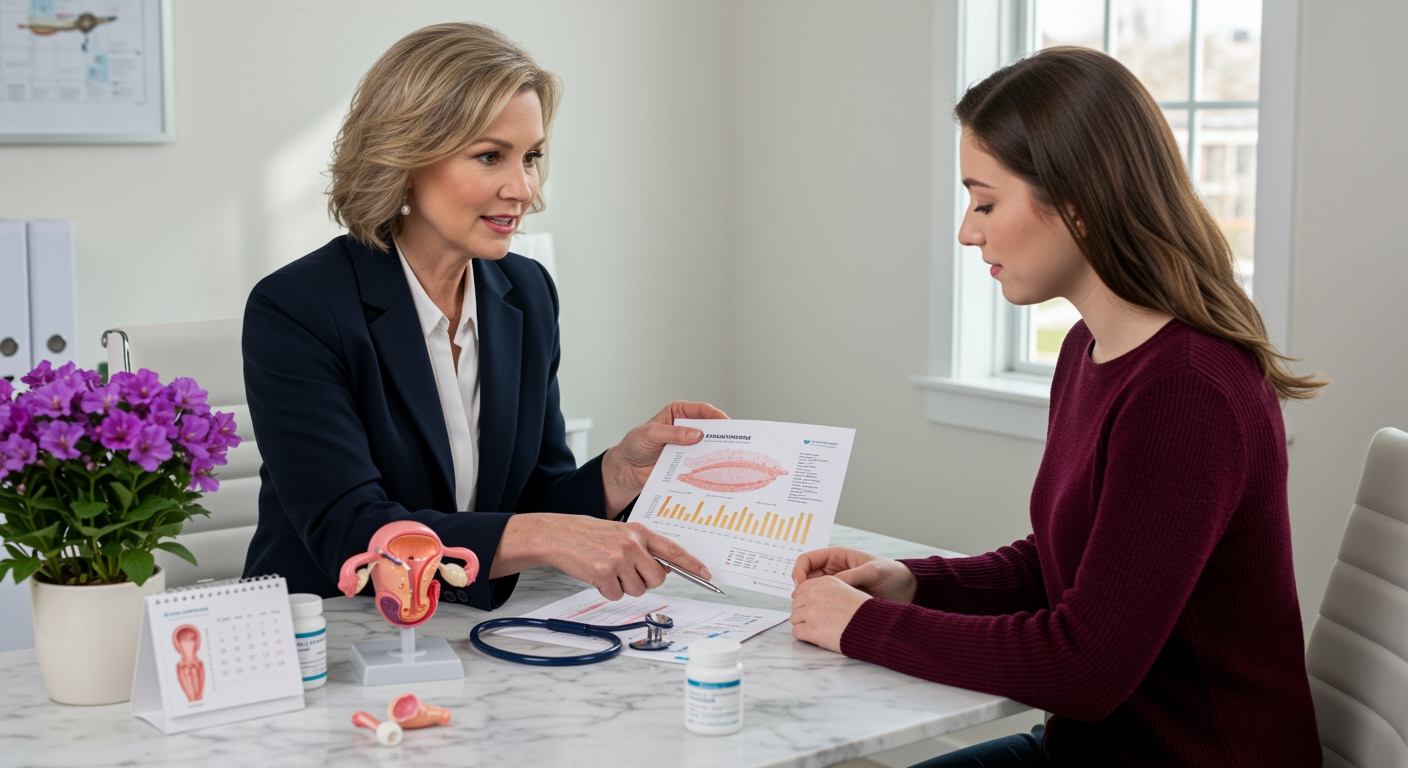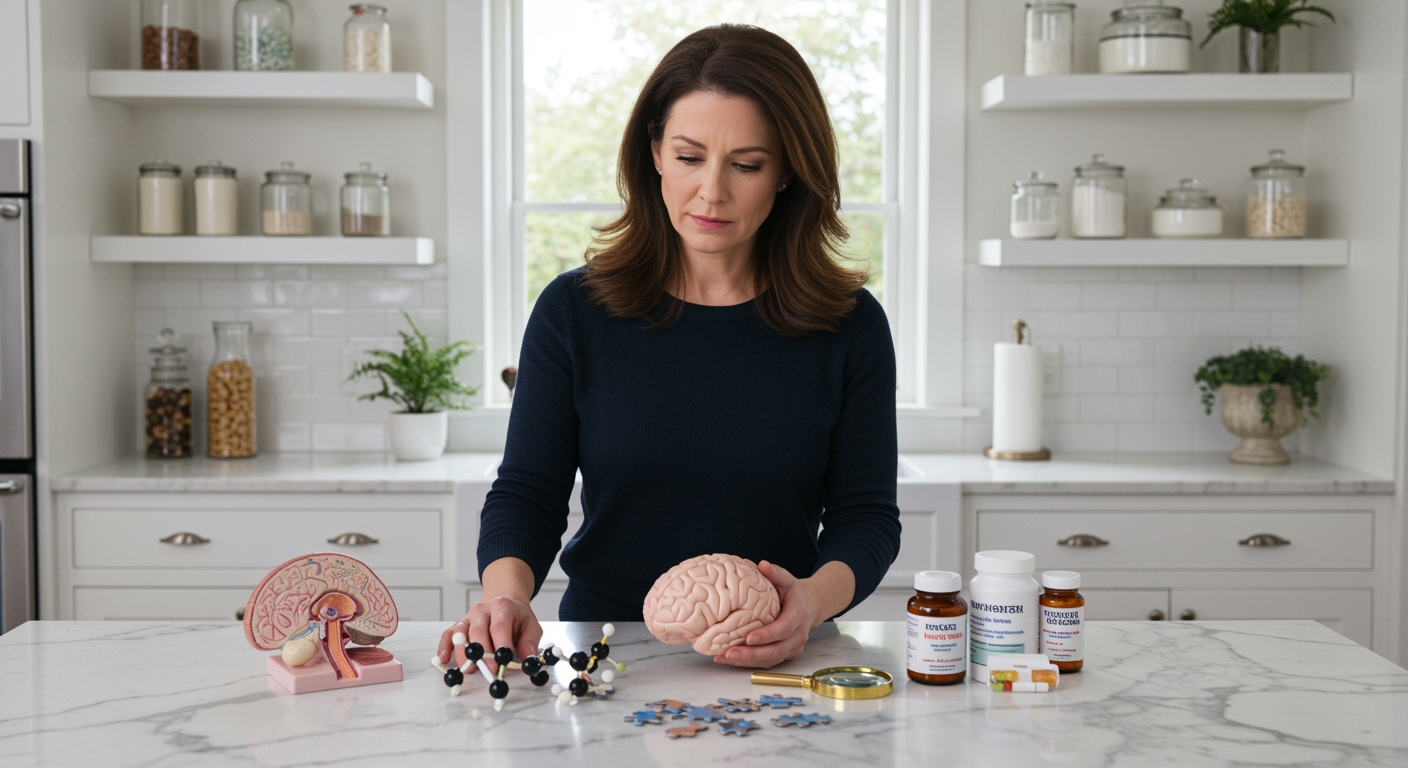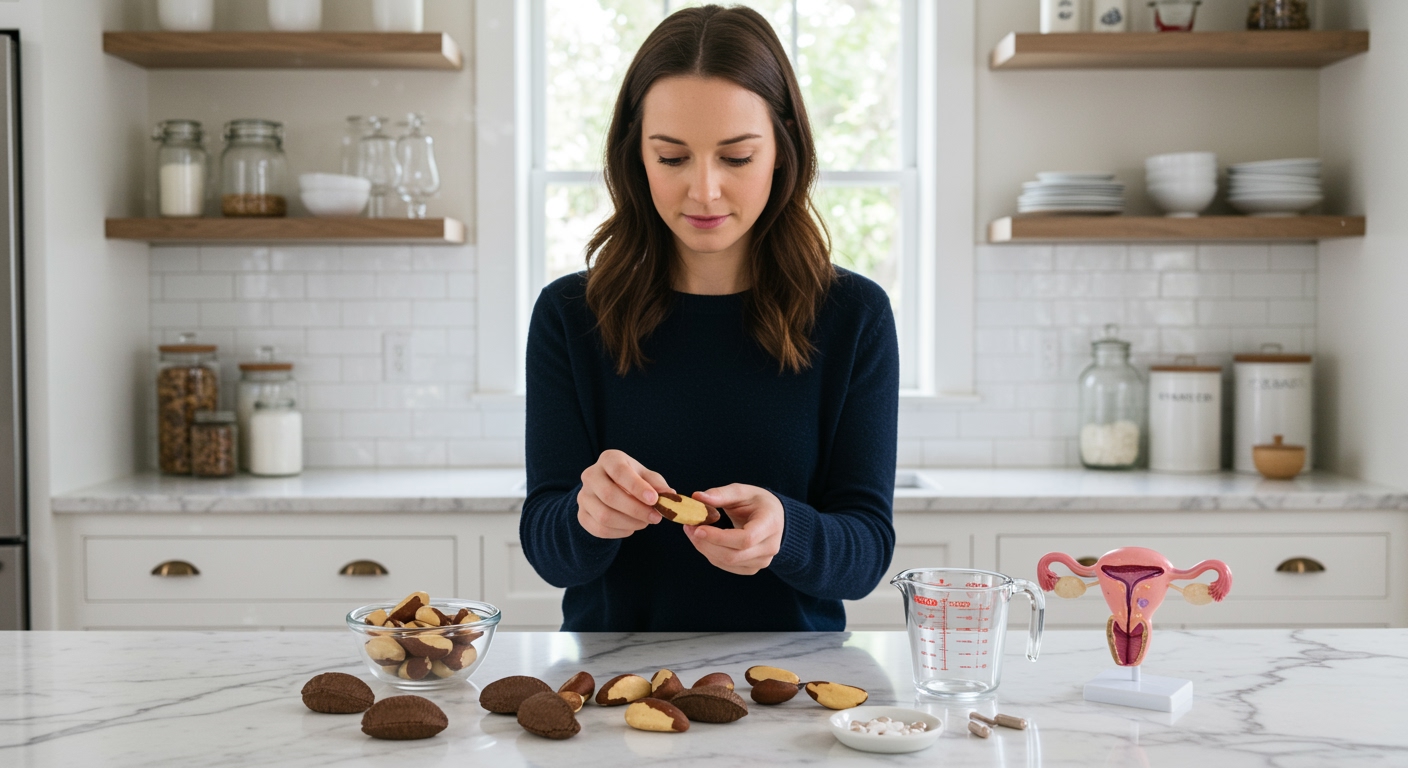✪ Key Takeaway: Black cohosh may help some PCOS menopause symptoms but lacks strong scientific evidence for consistent effectiveness.
Introduction
You wake up drenched in sweat again, and your irregular periods have completely stopped.
Women with PCOS face unique challenges during menopause because their hormonal journey differs from other women.
Hi, I’m Abdur, your nutrition coach and today I’m going to explain whether black cohosh can truly help manage your PCOS menopause symptoms.
What Makes PCOS Menopause Different?
PCOS menopause creates a double hormonal challenge that most women never experience.
Your ovaries already produce excess androgens like testosterone, which disrupts normal hormone balance.
When menopause begins, estrogen levels drop while androgen production may continue at higher rates.
This creates more severe hot flashes, night sweats, and mood swings compared to typical menopause.
Your body struggles to find balance between declining estrogen and persistently high androgens.
Many women with PCOS also experience insulin resistance that worsens during menopause, leading to weight gain and metabolic issues.
✪ Fact: Women with PCOS may experience menopause symptoms 2-3 years earlier than women without PCOS.
How Does Black Cohosh Work in Your Body?
Black cohosh contains phytoestrogens that mimic estrogen activity in your body.
These plant compounds bind to estrogen receptors in your brain, bones, and other tissues.
The herb appears to influence your hypothalamus, the brain region that controls body temperature and hormone release.
Some research suggests black cohosh may increase serotonin activity, which could improve mood and reduce hot flashes.
The active compounds called triterpene glycosides may also affect luteinizing hormone levels in your pituitary gland.
However, scientists still debate exactly how black cohosh produces its effects because the mechanisms remain poorly understood.
✪ Note: Black cohosh does not actually contain estrogen but acts like a weak estrogen in certain body tissues.
What Does Research Say About Black Cohosh for PCOS?
Limited studies have specifically examined black cohosh in women with PCOS during menopause.
Most research focuses on general menopause symptoms without considering the unique hormonal profile of PCOS women.
One small study suggested black cohosh might help reduce hot flashes in some women, but results varied widely.
The herb showed minimal effects on other menopause symptoms like night sweats, mood changes, or sleep disturbances.
Some women with PCOS reported feeling worse on black cohosh because it may interfere with their already disrupted hormone balance.
Current evidence suggests black cohosh works better for women with normal hormone patterns rather than those with PCOS-related complications.
✪ Pro Tip: Keep a symptom diary for at least 8 weeks if you try black cohosh to track any changes accurately.
Are There Safety Concerns You Should Know?
Black cohosh can cause liver problems in some people, especially with long-term use.
Women with PCOS often take multiple medications for insulin resistance and other conditions that may interact with black cohosh.
The herb may worsen existing hormone imbalances in PCOS women by adding more estrogen-like activity.
Some women experience stomach upset, headaches, or mood changes when starting black cohosh supplements.
Quality varies significantly between different black cohosh products because supplements are not strictly regulated.
Always consult your healthcare provider before adding black cohosh to your treatment plan, especially if you have PCOS complications.
✪ Note: Stop using black cohosh immediately if you develop yellowing of skin or eyes, which may indicate liver problems.
What Are Better Alternatives for PCOS Menopause?
Focus on lifestyle changes that address both PCOS and menopause symptoms simultaneously.
Regular exercise helps manage insulin resistance while reducing hot flashes and improving mood.
A low-glycemic diet supports stable blood sugar and may reduce the severity of menopause symptoms.
Stress management techniques like meditation can help balance cortisol levels that affect both PCOS and menopause.
Some women benefit from hormone replacement therapy specifically designed for their PCOS hormone profile.
Working with a healthcare team that understands both conditions gives you the best chance for effective treatment.
✪ Pro Tip: Combine multiple approaches rather than relying on a single supplement for managing complex PCOS menopause symptoms.
The Bottom Line
Black cohosh shows limited effectiveness for PCOS menopause symptoms and may not be worth the potential risks.
Your health deserves solutions backed by solid science, not wishful thinking.
Share your experiences with PCOS menopause management in the comments below, and let me know what approaches have worked best for you.
References
At NutritionCrown, we use quality and credible sources to ensure our content is accurate and trustworthy. Below are the sources referenced in writing this article:
- Medical News Today: Black cohosh: Benefits, dosage, and side effects
- National Center for Complementary and Integrative Health: Black Cohosh
- Office of Dietary Supplements: Black Cohosh – Health Professional Fact Sheet
- Frontiers in Endocrinology: Black cohosh for menopausal symptoms





